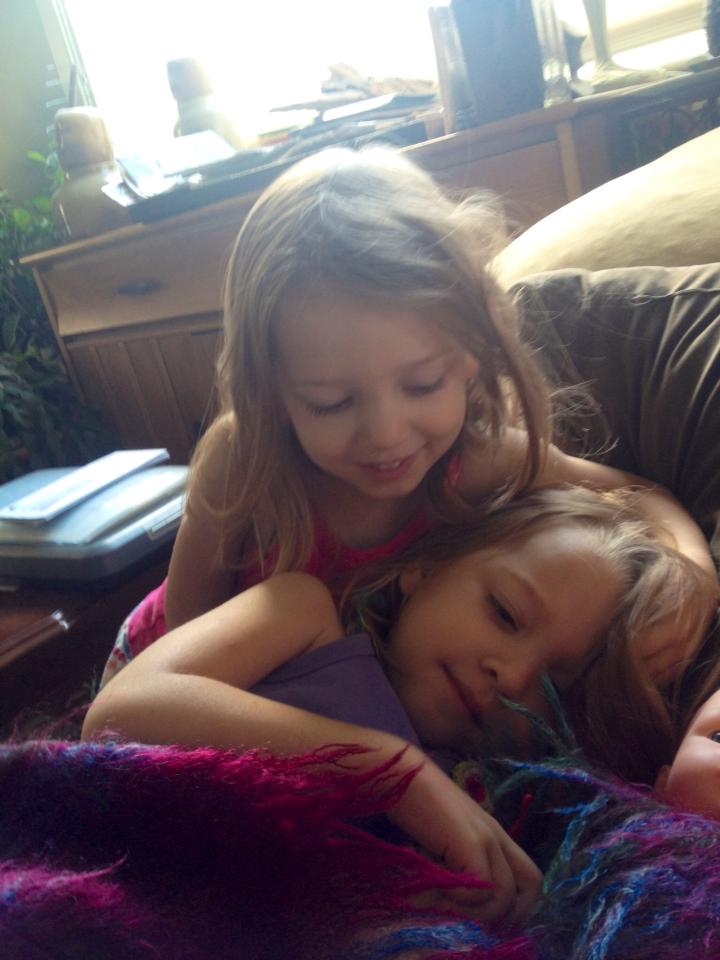 For me, Atachment Parenting (AP) does not mean permissive, however, I have noticed that it becomes that way for some. I think the problem lies in starting out AP with infants when their wants and needs are the same. Often we have come from backgrounds of very mainstream parenting and so the discipline we know is spanking, time outs, etc. but we don’t want to use those types of practices on our children as they get older. People don’t know how to teach and guide their children any other way so end up getting walked all over; they want their children to be happy, and are afraid of their big emotions. Another aspect of this issue is that there seems to be this either/or mentality; either the parents are in control or their children are. The fact that there is another option of mutual respect and understanding of a child’s developmental capabilities, etc. does not seem to occur to some or factor in to how they deal with conflict as it arises. I give my children quite a bit of freedom compared to many parents of toddlers I know, but the difference is that when they are “acting out,” for lack of a better sense of the word, I look for the need behind the behavior rather than treating them like they are being “bad” just for the sake of it. I stay connected to them so that I am easier able to figure out what is underlying their behavior. Most importantly, I respect their autonomy and their feelings, and provide plenty of opportunity to have control over their lives. Every situation is new and is dealt with separately, not like an ongoing issue, because that’s how toddlers think. And I don’t shame them. When I need to set a limit, I do so gently, “I’m not going to let you do that.” Or “you have already had 2 cookies, I don’t want you to have another right now.” And if the limit involves an action, like they are about to hit or kick or grab, I will gently hold their hand or foot; holding the limit, while also stating it. If this induces crying, I don’t try to stop that or fix it; I just stay with them, supporting that release of feelings. This has helped us through many transitions and rough patches. I read Alfie Kohn, Naomi Aldort, Magda Gerber, Pam Leo…there are many others.
For me, Atachment Parenting (AP) does not mean permissive, however, I have noticed that it becomes that way for some. I think the problem lies in starting out AP with infants when their wants and needs are the same. Often we have come from backgrounds of very mainstream parenting and so the discipline we know is spanking, time outs, etc. but we don’t want to use those types of practices on our children as they get older. People don’t know how to teach and guide their children any other way so end up getting walked all over; they want their children to be happy, and are afraid of their big emotions. Another aspect of this issue is that there seems to be this either/or mentality; either the parents are in control or their children are. The fact that there is another option of mutual respect and understanding of a child’s developmental capabilities, etc. does not seem to occur to some or factor in to how they deal with conflict as it arises. I give my children quite a bit of freedom compared to many parents of toddlers I know, but the difference is that when they are “acting out,” for lack of a better sense of the word, I look for the need behind the behavior rather than treating them like they are being “bad” just for the sake of it. I stay connected to them so that I am easier able to figure out what is underlying their behavior. Most importantly, I respect their autonomy and their feelings, and provide plenty of opportunity to have control over their lives. Every situation is new and is dealt with separately, not like an ongoing issue, because that’s how toddlers think. And I don’t shame them. When I need to set a limit, I do so gently, “I’m not going to let you do that.” Or “you have already had 2 cookies, I don’t want you to have another right now.” And if the limit involves an action, like they are about to hit or kick or grab, I will gently hold their hand or foot; holding the limit, while also stating it. If this induces crying, I don’t try to stop that or fix it; I just stay with them, supporting that release of feelings. This has helped us through many transitions and rough patches. I read Alfie Kohn, Naomi Aldort, Magda Gerber, Pam Leo…there are many others.
By Alice Romolo












